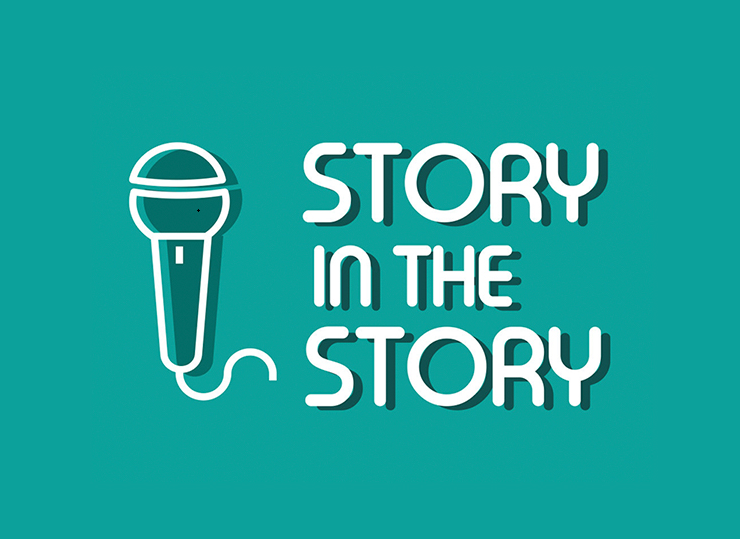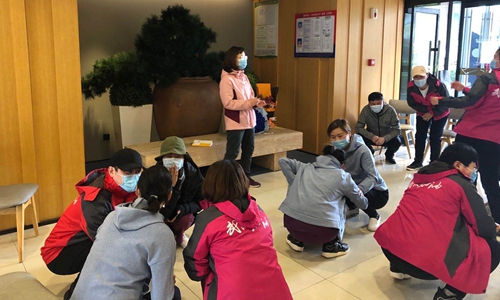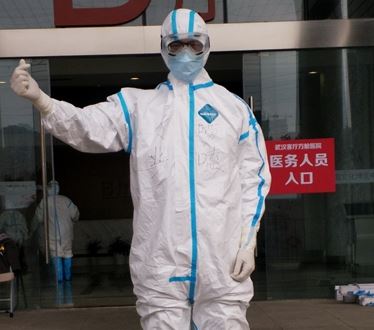
From the People's Daily App.
This is Story in the Story.
Having aided Wuhan and treated COVID-19 patients for months, most of the aid medics from around the country have gone home.
However, although most patients have recovered with their help and been discharged from hospital, some pains may linger among the doctors and nurses both in and outside Wuhan.
Hospitals in Wuhan and other cities in China have set in motion interventions on post-traumatic stress disorders (PTSD) that frequently happen to the medics returning from Wuhan.
Su Yanli, a psychiatrist at the mental health center of Xi'an, capital of Northwest China's Shaanxi Province, provided psychological support for medics in Wuhan, capital of Central China's Hubei Province.
Su said that medics in Wuhan were haunted by fear, tension, anxiety, and worry, but many of them resisted psychological assistance.
Today’s Story in the Story looks at how being on the frontlines of the pandemic has taken a psychological toll on medics.

Su Yanli (middle) directs a group of medics to play a warm-up game before a group psychological counseling in Wuhan, Central China's Hubei Province. (Photo: Courtesy of Su Yanli)
"They were under the spotlight and pressure after being reported by media as 'heroes who brave the coronavirus risk,' and heroes shouldn't have psychological problems," said Su. "Some people believe that only those who have mental issues need psychological counseling," she added.
Su was responsible for psychological support to medics in Zhuankou Fangcang makeshift hospital.
She found some medics had insomnia, so she decided to use it as bait. "We told them if you have sleeping issues, come talk to us," Su said. "People wouldn't accept they have mental issues, but it is easy for them to admit that they have sleeping issues," she said.
Gong Li, a psychiatrist of Huai'an Third People's Hospital of East China's Jiangsu Province, arrived in Wuhan on the same day with Su to provide psychological support to Dongxihu Fangcang makeshift hospital. He labeled himself as a "professional chatter" and marked it on his protection suit.
"If we reach out to them as a psychiatrist, most people would refuse as no one likes to admit they have a mental problem," Gong said.
"We would use WeChat for one-on-one counseling, as that’s a better way to protect their privacy and not be limited by time and place," Su said.
Field counseling was designated to help medical groups relieve stress. A game may help them relax and talk more, and Su would lead them to talk about their negative emotions during their work in Wuhan.
"An advantage of group counseling is to help people realize that they are not alone in feeling fear or anxiety, and that it is normal to have such negative emotions, so that they would feel less stressed," Su said.

Gong Li poses a finger heart in front of Dongxihu Fangcang makeshift hospital. (Photo: Courtesy of Gong Li)
Gong said that for most medics, speaking out about their negative emotions would help a lot. "Sometimes, we would just listen and be there for company, and they would feel much better after venting emotions, such as crying."
"I feel sorry for those dead patients who were not treated in time in the early stages. I regret that we didn't go to help Wuhan earlier," said Cao Zhaolong, an expert with the department of respiratory and critical care medicine at Peking University People's Hospital who aided Wuhan in February.
Cao, with more than 130 colleagues, was responsible for treating critical patients at an intensive care ward with 50 beds at the Sino French New City Branch of Wuhan Tongji Hospital.
"When we were in Wuhan, we did our best to treat every patient and had no regrets in treatment. Most colleagues are currently in good mental state," Cao said.
"We have taken into account the psychological conditions of the doctors aiding Wuhan, so we have tried to enrich their life during quarantine," said Zhong, a staff member in the publicity department at Peking University People's Hospital.
In isolation, all the doctors tested negative for nucleic acid, so they could take turns to exercise outdoors for half an hour every day.
Their room was also equipped with exercise equipment, and colleagues who were keen on exercise made a fitness video to teach the doctors in isolation how to work out in the room. Exercise is very helpful to mental health, Zhong said.
"Doctors are divided into small groups. Some groups are learning how to make short videos, some are writing articles to summarize experience against COVID-19. Everyone is actively involved. Colorful activities in isolation also help doctors' mental health," Zhong said.
(Produced by Nancy Yan Xu, Brian Lowe, Lance Crayon and Da Hang. Music by bensound.com. Text from Global Times.)


